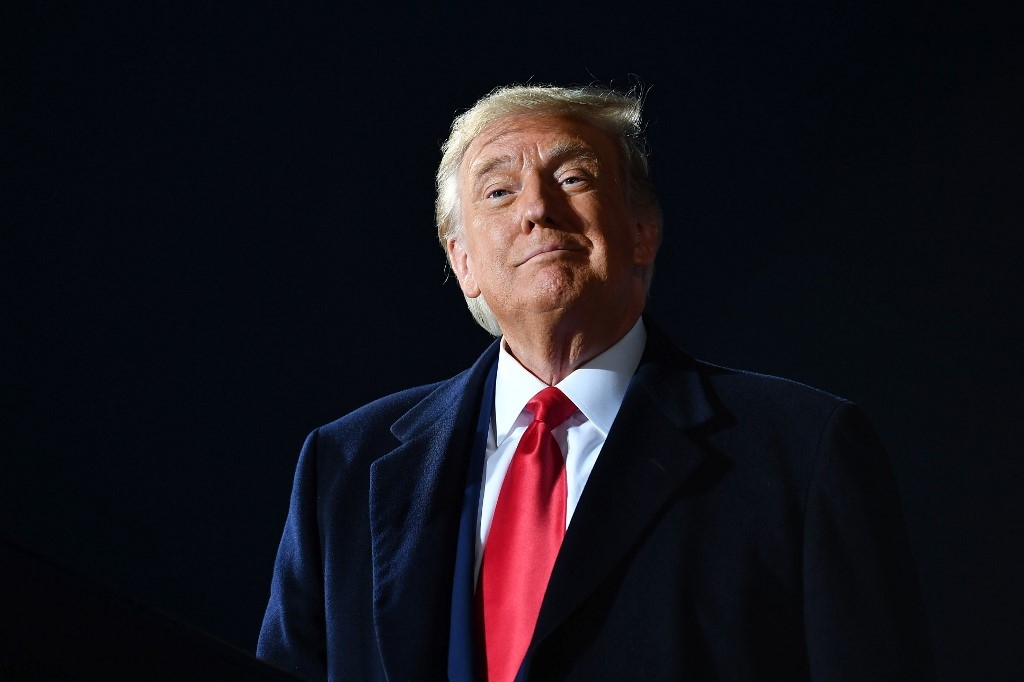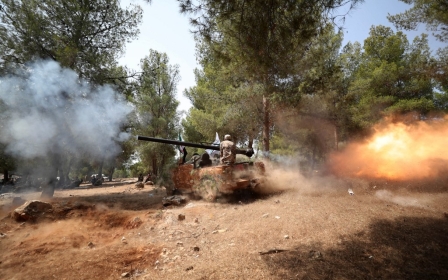Donald Trump touts his 'peacemaker' role in Middle East during UN address

US President Donald Trump touted himself as a "peacemaker" at the UN General Assembly on Tuesday, citing the signing of normalisation accords between Israel and two Gulf Arab nations and efforts to wind down the war in Afghanistan.
Speaking at the annual UN General Assembly via video conference, Trump delivered a short speech highlighting the US' withdrawal from the Iran nuclear deal, the killing of former Islamic State group leader Abu Bakr al-Baghdadi, and the normalisation agreements signed between Israel and the United Arab Emirates, and Bahrain.
"After decades of no progress, Israel, the United Arab Emirates, and Bahrain, all signed a historic peace agreement in the White House, with many other Middle Eastern countries to come," Trump said.
"They are coming fast and they know it's great for them, and it's great for the world. These groundbreaking peace deals are the dawn of the new Middle East."
The deals make the UAE and Bahrain the third and fourth Arab states to take such steps since Israel signed peace treaties with Egypt in 1979 and Jordan in 1994.
The Palestinians have described the deals as tantamount to "treason", and on Tuesday, representatives from both Hamas and Fatah held talks in Istanbul in an effort to unify the rival factions amid the prospect of more Arab nations estabishing diplomatic ties with Israel.
During his seven minute speech, Trump repeatedly heaped praise on his administration's role in the Middle East and laid scorn on his predecessor's polices in the region.
"By taking a different approach, we have achieved different outcomes, far superior outcomes," he said.
At a time of scathing criticism against the Trump administration's response to the coronavirus pandemic, racial tensions and natural disasters, analysts say the US president plans to use the diplomatic breakthrough's to boost his chances of getting reelected this November.
'There is no blood in the sand'
Speaking to the UN, Trump also repeated a trope insinuating that the Middle East had been in perpetual conflict when he said: "there is no blood in the sand."
The US president used this term during separate news conferences with Netanyahu and the UAE foreign minister earlier this month, saying: "It's been blood all over the sand for decades and decades and decades. That's all they do - they fight and kill people and nobody gets anything."
Trump also said that under his presidency the US was fulfilling its "destiny as peacemaker", but stressed that Washington would only achieve "peace through strength", a reference to the might of the US weapons industry.
"We are stronger now than ever before. Our weapons are at an advanced level like we've never had before, like frankly, we've never even thought of having before. And I only pray to God that we never have to use them."
Trump also championed his withdrawal from the 2015 Iran nuclear deal, which he called "terrible" as he boasted of the "crippling sanctions" that have been imposed on Iran.
"We withdrew from the terrible Iran nuclear deal and imposed crippling sanctions on the world's leading state sponsor of terror."
He also defended the killing of top Iranian general Qassem Soleimani in a drone strike in January, calling him the "world's top terrorist".
Tensions between the US and Iran reached a level not seen in decades after the US assassinated Soleimani.
At the time, Tehran responded by striking several Iraqi military bases housing US troops. The attacks resulted in at least 100 American personnel being admitted to hospital with traumatic brain injuries.
Middle East Eye delivers independent and unrivalled coverage and analysis of the Middle East, North Africa and beyond. To learn more about republishing this content and the associated fees, please fill out this form. More about MEE can be found here.





